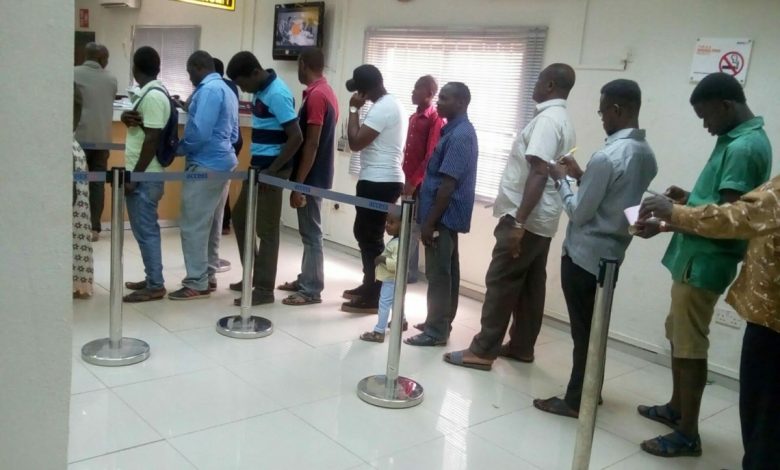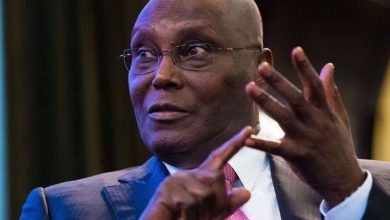
THE volume of bad debt recovered by banks declined 18% year on year, YoY, to N28.68 billion in the nine months ended September 30th, illustrating the severe impact of the unfriendly climate on businesses across the country.Information Guide Nigeria
As a result of the adverse economic circumstances, more debtors defaulted on loan repayments during the period, resulting in a 32% YoY rise in loan losses (bad loans) recorded by banks to N165.46 billion from N125.68 billion in the similar period of 2021.
👉 Relocate to Canada Today!
Live, Study and Work in Canada. No Payment is Required! Hurry Now click here to Apply >> Immigrate to CanadaAs a result, loan recovery as a percentage of loan losses (bad loans) declined by 11 percentage points during the period, to 17%.
Financial Vanguard data from the operating results of ten banks for the nine months ended September 30th, 2022, 9M’22, revealed that seven banks experienced a fall in loan recovery while three experienced an increase.
The banks’ findings showed that the quantum of loan recovery declined to N28.68 billion in 9M’22 from N34.89 billion in 9M’21.
Access Bank, GT Holding Company, FBN Holdings, United Bank, UBA, and Zenith Bank are the 10 banks. Fidelity Bank, Sterling Bank, Stanbic IBTC, Unity Bank, and Wema Bank are some of the others.
The dip was caused by Tier-1 banks, which collectively recorded a 28% drop in loan recovery to N19.94 billion in 9M’22 from N27.71 billion in 9M’21.
Loan losses at Tier-1 banks increased by 25% year on year to N144.05 billion in 9M’22, up from N115.12 billion in 9M’21.
All Tier-1 banks reported declines, with the exception of FBNHoldco, which reported a 5.6% YoY increase in loan recovery to N5.51 billion in 9M’22 from N5.22 billion in 9M’21.
Among Tier-1 banks, GTHolco experienced the greatest drop in loan recovery, falling 61% to N1.49 billion in 9M’22 from N3.85 billion in 9M’21. UBA’s profit fell 38% to N2.46 billion from N3.95 billion. Zenith Bank likewise reported a 35% decrease in loan recovery to N3.63 billion from N5.51 billion, while Access Bank reported a 26% decrease in loan recovery to N6.85 billion in 9M’22 from N9.17 billion in 9M’21.NYSC portal
👉 Relocate to Canada Today!
Live, Study and Work in Canada. No Payment is Required! Hurry Now click here to Apply >> Immigrate to CanadaOther Top Football News:
- Female Teacher Apprehended For Allegedly Sexually Assaulting 5-year-old Pupil
- 2023: Reason It Will Be Difficult For APC To Defeat Seyi Makinde In Oyo – El-Rufai
- We’re Conquering Insecurity In Imo -Uzodimma
- Benue Governor ‘Dancing’ With Wike – Benjamin Obe, AAC Candidate
Tier 2 banks
However, loan recovery at Tier-2 banks increased by 21% in 9M’22 to N8.73 billion from N7.18 billion in 9M’21.
However, loan losses at Tier-2 banks increased by 103% year on year to N21.4 billion in 9M’22 from N10.56 billion in 9M’21.
The increase in loan recovery by Tier 2 banks was aided by Fidelity Bank and Unity Bank, which achieved 100% and 88% YoY increases, respectively, while the remaining three Tier-2 banks had reductions.
Fidelity Bank recovered N3.79 billion in loan losses in 9M’22, up from nil in 9M’21. Unity Bank, for its part, recovered N2.13 billion in loans, up from N1.14 billion in 9M’21.
Among Tier-2 banks, Stanbic experienced the biggest YoY reduction in loan recovery, falling 76% to N1 billion from N4.18 billion in 9M’21.
Wema Bank followed with a 24% YoY fall to N28 million from N37 million, while Sterling Bank had a 2.7% YoY decline to N1.78 billion in 9M’22 from N1.83 billion in 9M’21.JAMB portal
Debtors facing economic shocks – Analysts
The steep drop in loan recovery volume is mostly due to rising economic issues, such as high energy prices, currency challenges, and inflation, which make it harder for borrowers to repay their loans.
Managing Director/ Chief Executive of PFI Capital, a Lagos-based investment firm said: “Macroeconomic headwind is the most prevalent amidst a myriad of factors affecting commercial banks’ decline in loan recovery. Individuals are dealing with a cost-of-living crisis, which has reduced the purchasing power of consumers, as prices of goods and services continue to soar at an increasing pace.
“Hence, disposable income has decreased in real terms; customers would likely not be able to pay up their loans because there would be little or no cash left after paying for their basic needs.
“Similarly, businesses are battling with the cost of doing business exacerbated by higher diesel prices, increasing foreign exchange rate, and increasing cost of servicing debts. Manufacturing companies that are import dependent for their inputs suffer from the higher cost of raw materials. Consequently, their ability to pay back their loans has been impaired.
“Tier 1 banks suffered a more significant decline due to the volume of credits they provide which is more than tier 2 banks. Besides this, no specific factors relating to any bank led to the decline in loan recovery.”
Similarly, Tunde Abioye, Head Equity Research, FBNQuest Capital, said: “If the economy isn’t doing well, it would actually be more difficult for banks to make more recoveries. Of course, other factors include the resources that banks put into the recovery process, and how well they are able to negotiate with their delinquent customers.”
“I think it has to do a lot with the state of the economy because many of the businesses or investments for which those loans were secured are in serious shocks, said, Muda Yusuf, Chief Executive Officer, Center for the Promotion of Private Enterprise (CPPE),
Elaborating, he said: “Starting from the period of COVID-19 when we had very serious shocks and we even had a recession in 2020. Many of these companies are yet to recover.
“And while we are struggling to overcome that we had this Russia Ukraine crisis which also came with a whole lot of problems, supply chain, high energy prices and all of that.
“And on top of that many of those businesses have serious issues with forex. Many of those businesses are dependent on imports either for raw materials or equipment, so the forex issue has been a major issue and that problem has not abated now.
“So the macroeconomic headwinds are still very profound and I imagine that for most of them that is what would be responsible. And these macroeconomic headwinds are reflected in the forex situation, the depreciation, and the liquidity, it is also reflected in the high energy cost, we have seen what is happening to inflation. We have seen what is happening to even purchasing power.
“So all those things have made it extremely difficult for businesses to repay their loans. Although a small part of it will just be related to the character of those who borrowed. But the bigger factor in my view is the macroeconomic headwind.”
Also commenting, David Adonri, Chief Executive Officer, Highcap Securities Limited, said: “It is not surprising that loan recovery by banks has declined compared to last year. First, the harsh economic environment in Nigeria has adversely affected the income of borrowers. “Some of the debts, especially overdrafts were repriced this year as a result of a hike in interest rate. This escalated the short-term debt burden on borrowers amidst declining income due to galloping inflation.JAMB Result
“Subject to confirmation, I suspect that several bank credits to state governments may have become delinquent due to declining FAAC allocation and illegal election expenses.
“Finally, credits that were advanced by banks to domestic borrowers in hard currencies may have become delinquent due to forex scarcity and continued depreciation of the Naira.”
Check JAMB Result
Check and Confirm: How much is Dollar to Naira








